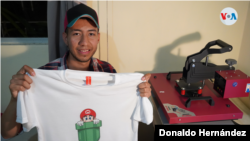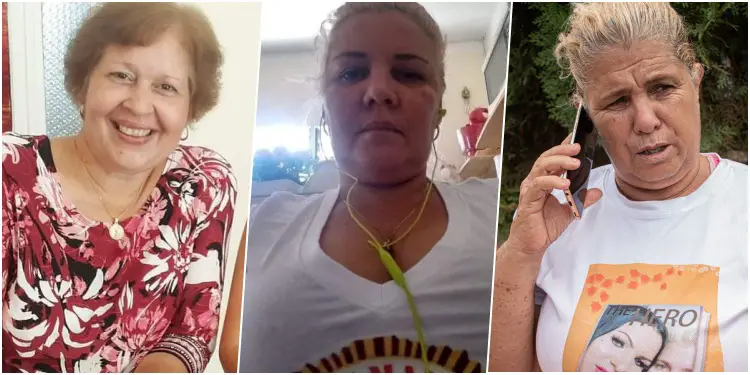Nicaraguan Snayder Suazo Báez, 29, emigrated to Costa Rica in 2020 for the state violence.
Although he was trained as a clinical psychologist, at first he had to do various jobs such as washing cars and being a security guard.
“I started working from the humblest, starting from scratch,” he told the voice of america.
But thanks to the remittances her family sent her, she started a small business during the pandemic. His relatives in the United States sent him about $6,000 over a two-year period, $4,000 of which was borrowed, he said. With the money he bought a screen printing machine with which he prints on T-shirts and other objects that he sells online.
“This business is still something informal that I have to offer to the public in the Marketplace,” he said.
Like Suazo, thousands of Nicaraguans receive family remittances.
According to data of the Central Bank, in 2022 Nicaraguans received a record of 3,224.9 million dollars in family remittances, 1,078 million dollars more than in 2021. In Costa Rica, which is the main country of refuge for Nicaraguans, received some 593 million dollars in remittances, according to the IDB.
Central America is one of the regions most dependent on remittances in the world.
According to official data provided by the Inter-American Development Bank (IDB), the remittances received by the Central American countries —Belize, Costa Rica, El Salvador, Guatemala, Honduras, Nicaragua and Panama— in 2022 reached 38.9 billion dollars. 84.3% of remittances come from the US.
Ricardo Zeas, a young exiled Nicaraguan, is one of Suazo’s clients, and told the VOA who recently ordered about 20 bags with sublimations and paid about 58,000 colones (about 106 dollars) for them.
Suazo also bought a vehicle with the remittances, and said that he rents it to do Uber service.
He also works as a delivery man for Uber Eats on a motorbike, his third source of income.
Connect with the Voice of America! Subscribe to our channel Youtube and activate notifications, or follow us on social networks: Facebook, Twitter and Instagram.













